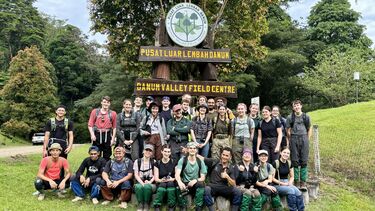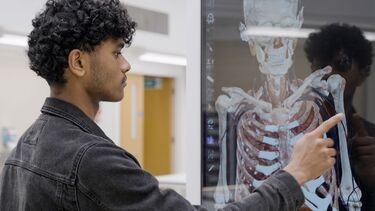Undergraduate study
Through our courses in Biochemistry, Biomedical Science, Biological Sciences and Zoology, we're training the next generation of bioscientists to solve some of the world's most pressing challenges.
Go beyond your degree
Preparing you for the career you want
You'll get lots of support to help you work out what you want to do after graduation, and the steps you need to take to get there.
When it comes to your career planning, our graduates go on to research careers that range from saving local biodiversity, to drug development in the pharmaceutical industry. They work in healthcare, join charities and government departments working in environmental management and climate change mitigation, and diversify into fields like marketing, human resources, and teaching.
One thing that’s for sure is you won't be short of options with a biosciences degree from Sheffield!
Student guide to studying biosciences
Join Biosciences students Alwin, Scarlett and Saoirse and discover what it’s really like to study Biological Sciences, Biochemistry, Biomedical Science, or Zoology at Sheffield.
Find out more about our coursesOur courses are accredited by the Royal Society of Biology, with advanced accreditation for our integrated masters programmes.










